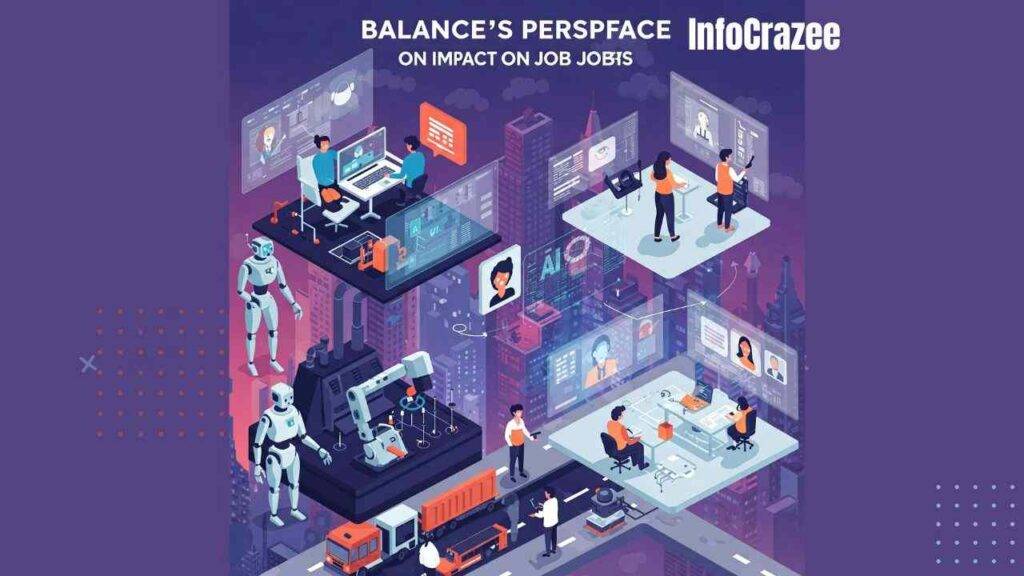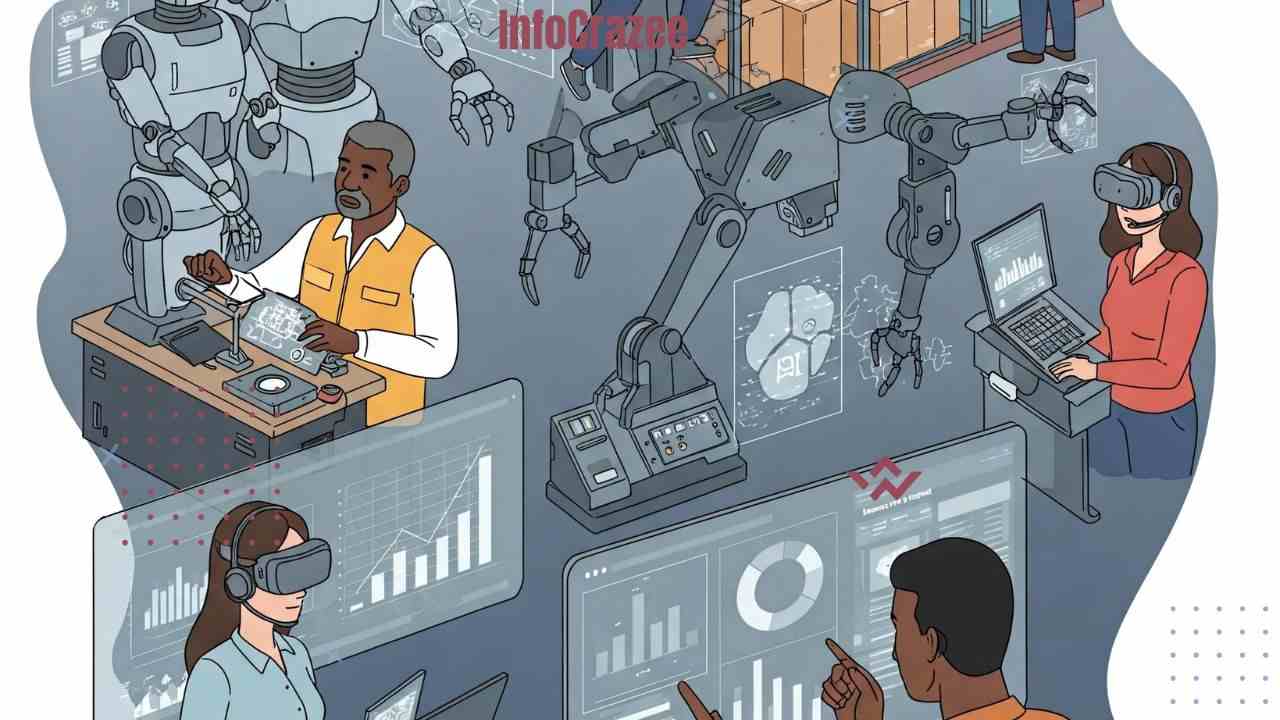How Future Technology Is Changing Jobs and What It Means for All of Us
Let’s be honest—technology is moving fast, and it’s changing the way we work in ways we never imagined. From AI and robots to remote work tools and automation, the future of work isn’t just something we talk about anymore. It’s already here.
But what does this all mean for you, me, and everyone trying to make a living? Let’s break it down in a simple, friendly way so you can see where things are heading—and how to stay ahead.
Goodbye Old Jobs, Hello New Ones
You’ve probably heard scary headlines about robots “stealing jobs.” And yes, some jobs are going away. But the real story is more about change than loss. Technology is shifting what we do—not just if we do it.

Jobs Being Replaced
Here are some of the roles where automation and AI are starting to take over:
- Data entry clerks: Software can now handle repetitive tasks way faster and without typos.
- Cashiers: Self-checkout machines and mobile apps are becoming the new normal.
- Telemarketers: AI chatbots can already hold basic conversations better than many people expect.
But it’s not all bad news…
Jobs Being Created
While tech takes over some tasks, it also creates new opportunities:
- AI specialists and data analysts: As companies use more tech, they need people to build and manage it.
- Cybersecurity experts: With more digital data comes the need to protect it.
- Remote work coordinators: Managing virtual teams and digital workflows is now a real job.
These are roles that didn’t exist a decade ago—and more are popping up every year.
Skills That Matter More Than Ever
You don’t need to become a coder overnight, but being tech-savvy really helps. Here are a few skills that are becoming essential:

1. Digital Literacy
Knowing your way around basic software, cloud tools, and online platforms is no longer optional—it’s expected.
2. Critical Thinking
AI can do a lot, but it can’t think creatively or solve problems like a human can. Being able to think through challenges and come up with smart solutions is a huge plus.
3. Adaptability
Things change quickly. Employers now value people who can learn fast and aren’t afraid of change.
4. Communication
Even in a high-tech world, being able to explain ideas clearly—especially online—is gold.
Real-World Example: Sarah’s Career Shift
Sarah worked as a retail manager for years. When her store went digital during the pandemic, she took a free online course in social media marketing. Fast forward to today—she’s running her own online store and using AI tools to manage inventory and create ads.
Her story isn’t rare. People everywhere are using tech to pivot and grow.
The Rise of Remote and Hybrid Work
Technology has also changed where we work. You don’t need to sit in an office 9 to 5 to be productive.

Benefits of Remote Work
- Flexibility: Work around your life, not the other way around.
- Less commuting: More time for yourself, less stress.
- Wider job options: You can work for a company in another city—or another country.
Tools Making It Happen
- Zoom & Microsoft Teams: Video calls are the new meeting rooms.
- Slack & Trello: Keep in touch and stay organized even when you’re miles apart.
- Cloud platforms like Google Drive: Access your work from anywhere.
Remote work isn’t going away. In fact, it’s becoming part of how we all work now.
What Businesses Are Doing
Smart businesses aren’t resisting tech—they’re embracing it. Here’s how:
- Upskilling employees: Instead of hiring new people, many companies are helping current staff learn new skills.
- Using AI for support tasks: AI helps with things like scheduling, customer service, and data analysis, giving teams more time for big-picture work.
- Hiring globally: With remote tools, companies can hire the best person for the job, no matter where they live.
So, What Can You Do?
Here’s how you can stay ahead of the curve:
- Keep learning: Take online courses in areas that interest you. Sites like Coursera, LinkedIn Learning, and even YouTube are full of free resources.
- Embrace new tools: Try out that new app your team is using—don’t be afraid to experiment.
- Build your network: Connect with others online. Platforms like LinkedIn can help you discover new opportunities.
Change can be scary—but it can also be exciting when you know how to navigate it.
FAQs
Q1: Will robots take all our jobs?
Not really. While some roles will disappear, new ones are being created. The key is to adapt and learn new skills that work alongside technology.
Q2: I’m not tech-savvy. Can I still find work in the future?
Absolutely. Many roles will still need human touch—like teaching, healthcare, or design. Learning basic digital tools will give you more options, though.
Q3: How do I start learning new skills without going back to school?
Try free or low-cost online platforms like Coursera, Udemy, or Skillshare. You can learn at your own pace—even just an hour a week can make a difference.
Final Thoughts
The future of work is already here—and it’s not as scary as it sounds. Sure, jobs are changing, but so are the ways we grow and succeed. Whether you’re just starting your career or thinking about a change, learning how to work with technology (not against it) is your best move.






